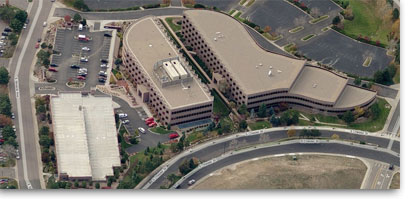Inteligence Fusion Centers
October 9, 2009
Most people aren't aware of Fusion Centers, but the people who are, are wondering what they are and what they do! Are they part of the local, state, federal government, military? Do they collect information on militias, illegal aliens, big businesses who are doing illegal things, you, me? And who pays for them, communities, state, federal government, military? Are they privately owned? A lot of questions, but not many answers in the public media.
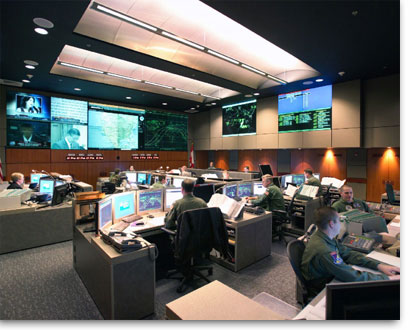
- Part of domestic surveillance system that incorporates private contractors, federal government, military, and local law enforcement
- Originally organized by the Department of Homeland Security and the Department of Justice
- Provide federal authorities with access to local databases and legally protected information concerning law-abiding citizens
- Often function with military liaisons and integrate with National Guard
- Often at undisclosed locations listing only post office boxes as physical addresses
- As of July 2009, approximately 72 fusion centers exist nationwide
The map data is believed to be current as of December 2010.
View Fusion Centers Map in full screen mode
Overview
“Fusion center†is a generic term for entities which are designed to integrate federal intelligence efforts with the state and local authorities. As of July 2009, there are 72 fusion centers around the country and one in nearly every state. These entities work under the auspices of local law enforcement, often integrating with the state’s police force, Department of Justice, or Office of Emergency Management. The fusion center integrates law enforcement intelligence activities throughout the jurisdiction, providing federal authorities access to local information and databases, while simultaneously allowing federal agencies to disseminate intelligence materials to local authorities. There are often federal representatives present in local fusion centers, either from civilian or military sources. The Department of Homeland Security lists 36 active field representatives as of July 2009 and a number of fusion centers are integrated with their state’s National Guard through “liaison officersâ€.
This combination of collection and dissemination creates a unique situation where larger federal agencies are able to simultaneously influence local law enforcement activities while gaining access to substantial amounts of private information on American citizens. An article from Time magazine in early 2009 notes that:
“New Mexico’s All Source Intelligence Center, housed in an old National Guard building, has access to 240 state, regional and federal agencies and their databases, including agricultural and parks agencies, according to Peter Simonson, executive director of the state’s ACLU chapter. Establishing what kinds of information is being processed by fusion centers can be difficult, Simonson says, since they do not store the records, or even collect them, but simply mine them through digital gateways. Records are accessed, not retained as they would be in specific case or investigative files. Simonson says the New Mexico chapter of the ACLU has filed several open records requests seeking to find out what kind of information is being reviewed, but has been stymied by the lack of a “material product.â€
The article also lists current Secretary of Homeland Security Janet Napolitano as being instrumental in the formation of one of the first state fusion centers. The American Civil Liberties Union has published several reports which are highly critical of fusion centers, equating their operations with the formation of a domestic spy force. One of their reports states that:
If the federal government announced it was creating a new domestic intelligence agency made up of over 800,000 operatives dispersed throughout every American city and town, filing reports on even the most common everyday behaviors, Americans would revolt. Yet this is exactly what the Bush administration is trying to do with its little-noticed National Strategy for Information Sharing, which establishes state, local and regional “fusion centers†as a primary mechanism for the collection and dissemination of domestic intelligence.
The report goes on to note that a 2008 Los Angeles Police Department order required officers to collect information on the seemingly mundane, everyday behaviors of American citizen. “LAPD Special Order #11, dated March 5, 2008, states that it is the policy of the LAPD to ‘gather, record, and analyze information of a criminal or non-criminal nature, that could indicate activity or intentions related to either foreign or domestic terrorism,’ and includes a list of 65 behaviors LAPD officers ‘shall’ report.†Some of the suspicious behaviors include taking notes, drawing diagrams and using binoculars.
Other fusion centers are listed in the report as having massive amounts of data on ordinary law-abiding citizens. The report states that:
“In addition to access to FBI and even CIA records, fusion centers often have subscriptions with private data brokers such as Accurint, ChoicePoint, Lexis-Nexus, and LocatePlus, a database containing cellphone numbers and unpublished telephone records. According to the article, fusion centers have access to millions of “suspicious activity reports†sent to the Treasury Department’s Financial Crimes Enforcement Network, as well as hundreds of thousands of identity theft reports kept by the Federal Trade Commission.â€
“Pennsylvania buys credit reports and uses face-recognition software to examine driver’s license photos, while analysts in Rhode Island have access to car-rental databases. In Maryland, authorities rely on a little-known data broker called Entersect, which claims it maintains 12 billion records about 98 percent of Americans … Massachusetts … taps a private system called ClaimSearch that includes a “nationwide database that provides information on insurance claims, including vehicles, casualty claims and property claims.â€
There have also been a number of incidents involving fusion centers infiltrating protest groups. One example of this is the Washington Joint Analytical Center’s infiltration of the Olympia Port Militarization Resistance, an antiwar group. John J. Towery, a Fort Lewis civilian contractor who worked for the Army’s Fort Lewis Force Protection Unit, posed as an anarchist and was fed information on the group by the WJAC. A document released March 5, 2009 by Wikileaks.org demonstrates that Army Fusion Cells, which are organized by Force Protection Units, are part of a domestic police intelligence operation which is designed to work with local law enforcement to, among other things, “identify and prevent disruptive actions by private protestorsâ€.
The National Intelligence Strategy of 2009 argues for increasing this policy information sharing and eliminating the barriers between classified military intelligence and civilian law enforcement. In September 2009, Federal Computer Week reported that the Department of Defense will begin sharing some classified information with local law enforcement.
Locations and Contact Information
The following list is believed to be accurate at this time.
Alabama
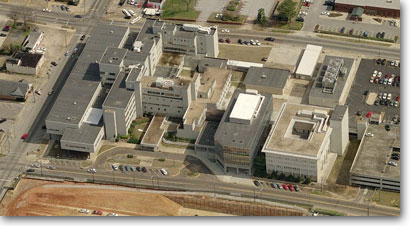
Criminal Information Center
301 South Ripley Street
Montgomery, Alabama 36104
PO Box 1511 Montgomery, AL 36102-1511
334-353-1172
-Component of Alabama Bureau of Investigation
Alaska
Alaska State Troopers Statewide Law Enforcement Information Center
101 E. 6th Ave.
Anchorage, Alaska, 99501
(907) 276-4441
-Located at FBI Alaska HQ: Anchorage Division Office
Arizona
Arizona Counter Terrorism Information Center (ACTIC)
Arizona Department of Public Safety
Post Office Box 6638
Phoenix, AZ 85005
602-644-5805
-Engaged with power, water companies, chemical sector, transportation such as trucking and rail transport. Contact point for local Infraguard chapter. Works with Arizona Division of Emergency Management (ADEM) which has developed relationship with the private sector, through the creation of the Arizona Emergency Response Commission (AZSERC), which has involved over 100 participants representing all 23 identified sectors, including over 70 companies.
California
State Terrorism Threat Assessment Center (STTAC)
California National Guard JFHQ
P.O. Box 269101
Sacramento, CA 95826-9101
sttac@doj.ca.gov
-This address is listed for military liaison officers working with STTAC.
Anti-Terrorism Information Center
Attorney General’s Office California Department of Justice
Attn: Public Inquiry Unit
P.O. Box 944255 Sacramento, CA 94244-2550
(916) 322-3360 or (Toll-free in CA) (800) 952-5225
-Component of the California Department of Justice. Staffed with analysts from FBI, local and state law enforcement.
Northern CA Regional Terrorism Threat Assessment Center (RTTAC)
P.O. Box 36102
San Francisco, CA 94102
(866) 367-8847
-TITAN website allows access by private sector, etc. to receive intelligence bulletins; security and safety information
Regional Terrorism Threat Assessment Centers (RTTAC)
Sacramento Regional Terrorism Threat Assessment Center
sacrttac@sacsheriff.com
(888) 884-8383
(916)808-8383
-Integrates with FBI JTTF and serves as contact point for Sacramento Infragard
San Francisco Regional Terrorism Threat Assessment Center
415-436-8096
(866) 367-8847
mmarty@nca.hid
Joint Regional Intelligence Center (JRIC) (Los
Angeles)
12440 East Imperial Highway
Norwalk, CA 90650
San Diego Regional Terrorism Threat Assessment
Center
(858) 495-5730
Los Angeles Regional Terrorism Threat Assessment
Center
(562) 345-1100
Colorado
Colorado Information Analysis Center
9195 E. Mineral Ave
Centennial, CO 80112
720-852-6705
Connecticut
Connecticut Intelligence Center (CTIC)
DEMHS
25 Sigourney Street, 6th Floor
Hartford,CT 06106-5042
(203) 777-6311
866-HLS-TIPS
Delaware
Delaware Information Analysis Center (DIAC)
Department of Safety and Homeland Security Office of the Secretary
303 Transportation Circle Dover , DE 19903
P.O. Box 818
Dover , DE 19903
(302) 744-2680
800-FORCE-1-2
-DIAC staffed with 4 full-time Delaware State Police Criminal Intelligence Analysts and 2 analysts provided through DE National Guard.
District of Columbia
Multiple Threat Alert Center (MTAC)
Naval Criminal Investigative Service Headquarters
716 Sicard St, SE Ste 2000
Washington Navy Yard, DC 20388-5380
(202) 433-3858
-Component of Naval Criminal Investigative Service. Engages private entities that are involved with Navy critical infrastructure, such as contractors that would be managing research facilities, waste handling, power plants, etc. several thousand facilities under their purview, mostly notifications on what potential threats are, how to protect from such a threat; provides them with information that would be provided to military about threats, etc., as required by law.
Foreign Terrorist Tracking Task Force
935 Pennsylvania Avenue, NW
Washington, DC 20535
(703) 553-7991
-Component of the Federal Bureau of Investigation
Florida
Florida Fusion Center (formerly Counter Terrorism Intelligence Center)
Post Office Box 1489
Tallahassee, FL 32302
(850) 410-7060
-Component of the Florida Department of Law Enforcement)Does not have any sort of database/storage/data collection procedure independent of the Office of Statewide intelligence, which the center is a part of current data collection procedure/storage must involve a defined criminal predicate.
Georgia
Georgia Information Sharing and Analysis Center (GISAC)
P.O. Box 29649
Atlanta, Georgia 30359
(404) 486 6420
-Coordinating operations with the Atlanta FBI Joint Terrorism Task Force
Illinois
Statewide Terrorism & Intelligence Center
2100 S. Dirksen Parkway
Springfield, IL 62703
(217) 782-7938
1-877-ILL-STIC
Indiana
Indiana Intelligence Fusion Center
Indiana Government Center South
302 West Washington Street, Room E243
Indianapolis, IN 46204
866-400-IIFC
Iowa
Iowa Intelligence Fusion Center
Region 5 Fusion Center, located in Des Moines Police Dept
Wallace State Office Building
Des Moines, IA 50319
25 East First Street
Des Moines, Iowa 50309
(515) 242-6124
Kansas
Kansas Threat Integration Center
2800 Topeka Boulevard
Room 13
Topeka, KS 66611
(785) 274-1822
-Component of Kansas State Bureau of Investigation
Kentucky
Kentucky Intelligence Fusion Center
Kentucky Office of Homeland Security
200 Mero Street
Frankfort, KY 40622
(502) 564-2081
Louisiana
Louisiana State Analytical & Fusion Exchange (LA-SAFE)
(Part of LA state police)
7919 Independence Blvd.
Baton Rouge, LA 70806
(225)-925-1978,
(800)-434-8007
Maine
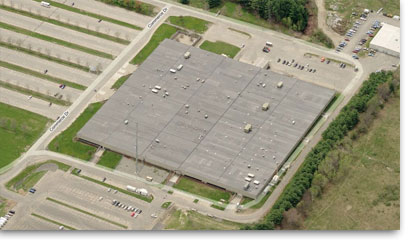
Maine Intelligence Analysis Center
Maine Information and Analysis Center
45 Commerce Dr. Suite 1
Augusta, Maine 04333
207-624-7287
Maryland
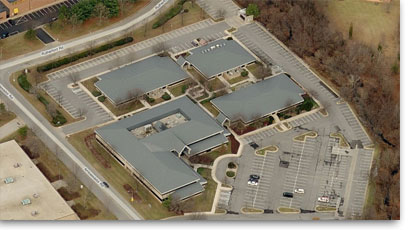
Maryland Coordination and Analysis Center
Ste 130, 7125 Ambassador Rd
Woodlawn, MD 21244, 443-436-8800.
443-436-7702
800-492-TIPS
-Component of MD state police and Antiterorrism Advisory Council of MD. Private sector working group at center; 15 reps from private sector groups to work on how to structure relationship between center and private entities; Finance and transportation sectors have been strong in getting and sharing info. Transportation partners include Amtrak, CSX, some airlines, metro, light rail. U.S. Army involved in force protection that stands watch; not involved in analysis of data
Massachusetts
Commonwealth Fusion Center
124 Acton Street, 2d Floor
Maynard, MA 01754
Phone: 978-451-3700
Fax: 978-451-3707
Tipline: 888-USA-5458
fusion@pol.state.ma.us
New England State Police Information Network® (NESPIN) RISS Intelligence
Center (Region includes: Connecticut, Maine, Massachusetts, New Hampshire,
Rhode Island, and Vermont)
124 Grove Street, Suite 105
Franklin, MA 02038
RISS Number:
(508) 528-8200
Minnesota
Minnesota Joint Analytical Center
Minnesota Department of Public Safety Central Office, Town Square Building
444 Cedar Street
Saint Paul, Minnesota 55101
(612) 341-7002
-Formerly under the direction of MN Division of Homeland Security Emergency Management, now under State Police. Relationships with the private sector: critical infrastructure representative at fusion center; partnerships with utilities companies, security (corporate, hospitals, universities including University of Minnesota and University of Minnesota-Duluth, as well as some of the larger private colleges).
Montana
Montana All-Threat Intelligence Center (MATIC)
Division of Criminal Investigation Department of Justice
2225 11th Avenue
P.O. Box 201417
Helena, MT 59620-1417
(406) 444-3874
-Component of the Montana Department of Justice, Division of Criminal Investigation
New Hampshire
NH Department of Safety Homeland Security and Emergency Management
Incident Management Center
110 Smokey Bear Blvd
Concord, NH 03301
33 Hazen Drive
Concord, NH 03305
Local (603) 271-2231
Toll free (800) 852-3792
-Director of Homeland Security and Emergency Management is the State’s primary contact with the federal Department of Homeland Security and counterparts in other states. Federal involvement in NH Department unknown.
New Jersey
Regional Operations and Intelligence Center (ROIC)
New Jersey State Police
P.O. Box 7068
West Trenton, NJ 08628
609-882-2000
-Under the New Jersey State Police. Analysts include state police employees, traditional police analysts, folks from govt (ATF, FBI, coast guard) and analysts from NJ Office of Homeland Security and Preparedness
New Mexico
New Mexico Department of Homeland Security and Emergency
Management’s All Source Intelligence Center (ASIC)
13 Bataan Blvd.
Santa Fe, NM 87504
505-476-9600
New York
Upstate New York Regional Intelligence Center (UNYRIC)
630 Columbia St
Latham, NY 12110
(866) 486-9743
-(Component of the NY State Police)
Rockland County Intelligence Center (RCIC)
Post Office Box 295
New City, NY 10956
(877) 724-6835
-Component of the Rockland County Sheriff’s Office
New York City Police Department Intelligence Division (NYPD INTEL)
NYPD switchboard: 646-610-5000
North Carolina
North Carolina Regional Analysis Center
3320 Garner Road
Raleigh, NC 27601
(800) 334-3000
North Dakota
North Dakota Homeland Security Fusion Center
PO Box 5511
Bismarck, ND 58506
(866)-885-8295
-Component of the North Dakota Bureau of Investigations.
Ohio
Strategic Analysis and Information Center
1970 West Broad Street
Columbus, Ohio 43223
(614) 466-6178
Oregon
Terrorism Fusion Center (TITAN)
610 Hawthorne Avenue, SE
Suite 210
Salem, OR 97301
(800) 442-6248
-Component of the Oregon State Police and the Oregon Department of Justice.
Pennsylvania
Pennsylvania Criminal Intelligence Center (PaCIC)
1800 Elmerton Avenue
Harrisburg, PA 17110
(717) 772-4140
-Component of the Pennsylvania State Police.
Middle Atlantic-Great Lakes Organized Crime Law Enforcement Network®
(MAGLOCLEN) RISS Intelligence Center
140 Terry Drive, Suite 100
Newtown, PA 18490
(215) 504-4910
-Region includes: Delaware, Indiana, Maryland, Michigan, New Jersey, New York, Ohio, Pennsylvania, and the District of Columbia.
Rhode Island
Rhode Island State Fusion Center
311 Danielson Pike
North Scituate, RI 02857
(401) 444-1026
-Within Rhode Island State Police
South Carolina
South Carolina Fusion Center
PO Box 21398
Columbia, SC 29210
(803) 896-7008
-Component of the South Carolina Law Enforcement Division.
South Dakota
South Dakota Fusion Center
118 West Capitol Avenue
Pierre, SD 57501
605.773.3450
-Within South Dakota Department of Homeland Security.
Tennessee
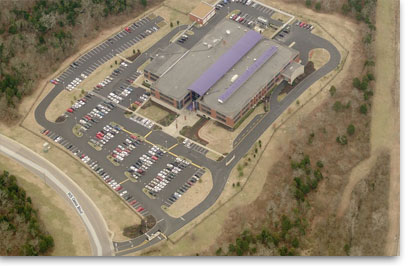
Tennessee Regional Information Center
Tennessee Bureau of Investigations
901 R.S. Gass Boulevard
Nashville, Tennessee 37216
877.250.2333
Texas
Texas Intelligence Center
Texas Department of Public Safety Criminal Intelligence Service
Texas Intelligence Center
P.O. Box 4087
Austin, Texas 78773-0425
(512) 424-7981
Website
- All hazards system that can be accessed remotely, contains public health, emergency response and law enforcement portals. Servers located at Center; system links together local databases, such as records management system from local law enforcement agencies.
North Central Texas Fusion System
http://www.fusionsystem.us/
Utah
Utah Criminal Intelligence Center
Department of Public Safety, Division of Homeland Security
Post Office Box 140200
Salt Lake City, UT 84114-0200
(801) 579-4413
Virginia
Virgina Fusion Center
Post Office Box 27472
Richmond, VA 23261
(804) 674-2000
Vermont
Vermont Fusion Center
The Vermont Fusion Center Law Enforcement Support Center
Williston, Vermont 05495
802-872-6110
Washington
Washington Joint Analytical Center (WAJAC)
P.O. Box 42600
Olympia, WA 98504-2600
(360) 753-6540
-Works with private sector to report suspicious activity. Includes utilities and Microsoft. In negotiations to have Boeing provide an analyst for the center; working on issues and threat assessments relating to critical infrastructure and also act as a liaison reflecting the needs of business community with regards to homeland security issues.
West Virginia
West Virginia Joint Intelligence Fusion Center (WVJIFC)
1900 Kanawha Blvd., East
Bldg 1, Rm W-400
Charleston, WV 25305
Phone: (304) 558-4831
Toll Free: 1-866-WVWATCH
Fax: (304) 558-6592
wvfusion@wv.gov
-Component of West Virginia Dept of Military Affairs and Public Safety
Wisconsin
Wisconsin Statewide Information Center
Post Office Box 7857
Madison, WI 53707-7857
608-266-1671

